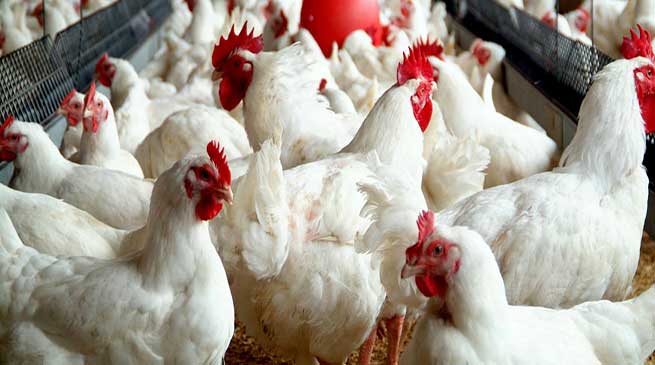Poultry farmers in the northern part of the country have called on the government to subsidize poultry feed and other products in the sector in order to assist local poultry farmers to thrive.
The Northern Regional Chairman of the Poultry Farmers Association of Ghana, George Dassah, told the B&FT that government needs to quickly respond to the needs of the industry in order to prevent retardation of the sector’s growth. “Many have had their poultry businesses collapse due to lack of funding, infections as well lack of market for the birds, especially in this pandemic,” he said.
Mr. Dassah also blamed the woes of the local industry on over-concentration on importing poultry products into the country, adding: “These imports are heavily subsidized by exporting countries and are virtually dumped in African countries”.

According to him, apart from the lack of political will by successive governments, high cost of credit, high cost of inputs, unbridled importation of frozen chicken due to trade liberalization, the incidence of some poultry diseases like the bird flu, are some of the several factors hampering growth and development of the poultry business in the North.
The current challenges confronting the sector have led to many poultry structures idling in the Northern part of the country, as most farmers have folded up due to high costs of input that have and are still adversely affecting the industry. The association calls for tailor-made credit facilities for poultry farmers, as well as incentives that encourage farmers to scale-up production.
The poultry industry is one of the fastest-growing agricultural sub-sectors, especially in developing countries. It is a multibillion-dollar industry that has the potential of contributing immensely to the Gross Domestic Product (GDP) of countries that take it seriously.
It makes a substantial contribution to food security and nutrition, providing energy, protein, and essential micro-nutrients to humans, with short production cycles and the ability to convert a wide range of agri-food by-products and wastes into meat and eggs edible by humans.
While the sector is usually seen as efficient in converting natural resources into edible products, it uses large amounts of land, water and nutrients for the production of feed materials and contributes to climate change – mainly through feed production, air and water pollution. The global poultry sector is expected to continue growing as demand for meat and eggs is driven by growing populations, rising incomes and urbanization. In this context, the sector is facing unprecedented challenges.


